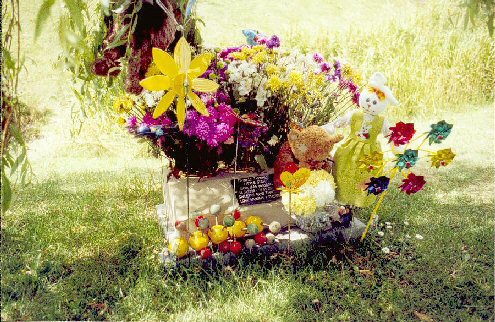Introducing the theme of death and loss


There is no right way to approach the subject of death but, since it is a very significant part of our experience as human beings, it is a proper theme for children to encounter in schools.
1. It might be introduced during a school assembly when there has been a catastrophe such as the tsunami in the Indian Ocean or the earthquake in Pakistan and Kashmir. There might be a prayer for the victims and those who have been bereaved. Positive responses are important so that there might be a collection, or even a fund-raising event, to send to a disaster fund.
2. One head teacher, whose closest friend had just died, took the opportunity of the school assembly to tell the pupils about his bereavement and to talk about the special memories he had of his friend. One might emphasise that people never wholly die whilst ever we remember them.
3. Remembrance Day provides an opportunity to talk about the need to think about those who have died - and are still dying - in war. It is an occasion to read one of the now-traditional war poems such as Laurence Binyon's 'For the Fallen' with its often-quoted verse:
4. Religious Education classes provide the opportunity to learn about the rites for the dead in different religions. They also allow scope for learning about accounts of the deaths of particular individuals in the Hebrew and Christian scriptures and in the traditions of other world religions, such as the martyrdom of Guru Arjan in the Sikh tradition.
5. Some children's stories include the death of a character. There are deaths in the Harry Potter stories by J K Rowling. The account of the funeral of Dumbledore in the sixth book might provide a basis for discussion. In Lucy Boston's book, The Children of Green Knowe , seven-year old Tolly learns from his great-grandmother that the children whose toys surround him lived long ago and are now all dead.
Older pupils may well study a novel or a play in which deaths occur. Some will have the opportunity to study one of other of Shakespeare's tragedies and to consider the perspectives Shakespeare provides on death. Literature classes also provide the opportunity to explore the portrayal of death in poetry
6. A focus on local history may prompt a visit to a graveyard (always with the agreement of parents!).

Here pupils can be encouraged to look for interesting epitaphs and to find out about the ages at which people died in the past.
7. Geography classes may focus on the natural causes of disasters which lead to loss of life, such as earthquakes, floods, hurricanes and tsunamis, and the human activities which may exacerbate these (eg building on flood plains) or reduce their power to destroy (eg tidal surge barriers).
8. For older pupils, science classes might consider the means of identifying a body, via dental records, finger-prints, or dna.